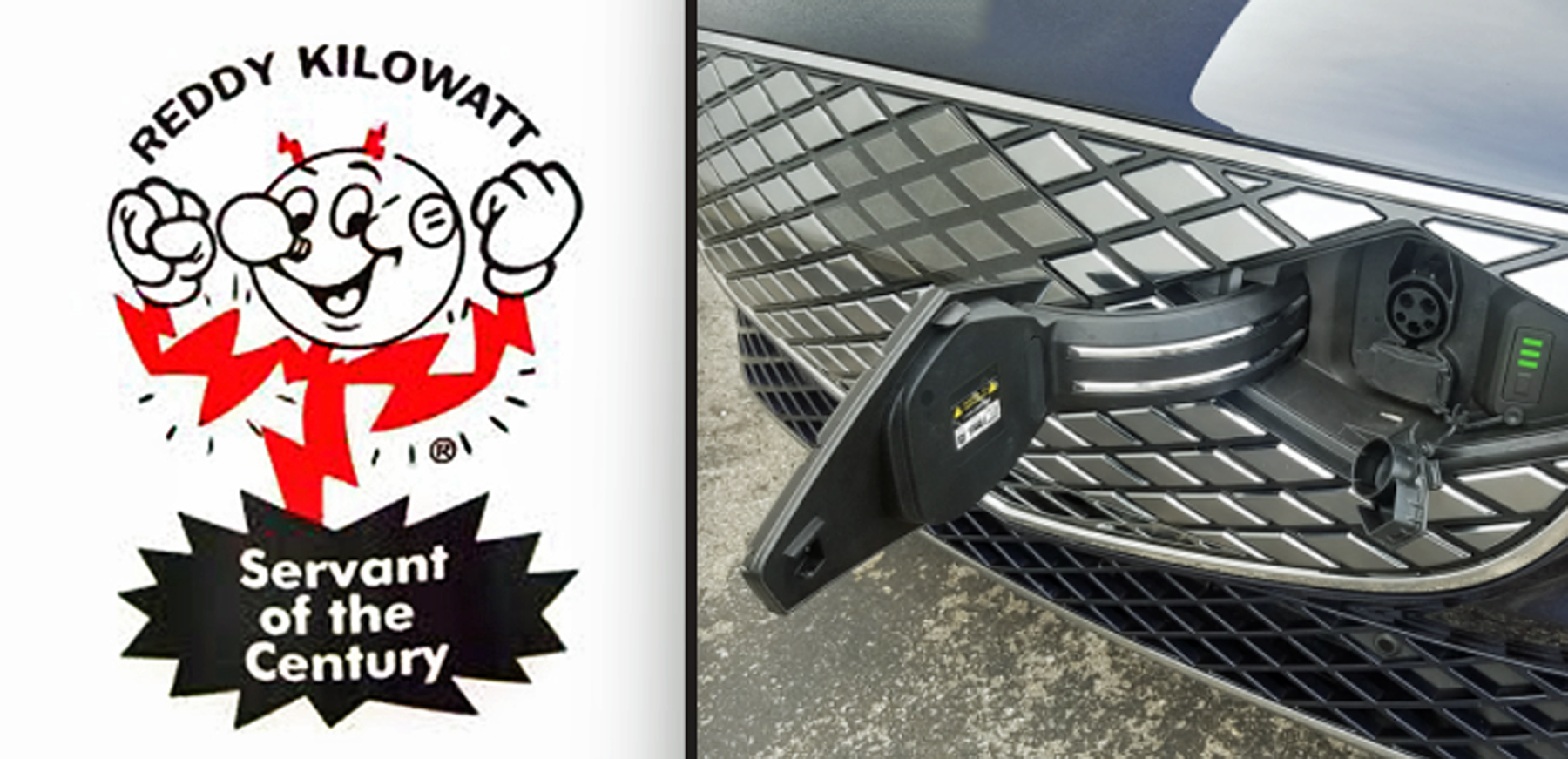
Reddy Kilowatt was once a company mascot first utilized by the Alabama Energy Corporate in 1926. Reddy was once a part of a marketing campaign to inspire American citizens to include electrical energy.
For those who’ve been listening to or studying about electrical cars, you’ve doubtless come around the phrase “kilowatt.” The vernacular of the EV is slightly other than that of gas- or diesel-powered vehicles. Long gone are phrases and phrases like gallon and horsepower, changed through the likes of kilowatt (kW) and kilowatt hour (kWh).
Extra electric-car information and opinions
The kilowatt is a elementary unit of power and is used to precise quantities of electrical energy, in addition to motor output, the latter in a lot the similar method horsepower is used.
To assist explain issues, we’ll undergo a couple of examples of the way the phrase kilowatt is used when discussing electrical vehicles and electric-car charging.
What’s a kilowatt?
A kilowatt is—no marvel to scholars of the metric machine—1000 watts. In electric phrases, a watt is a straightforward option to summarize the quantity of energy being mentioned. The maths is thus: amps instances volts equals watts.

Business “level-3” chargers usually supply between 50- and 350-kW of charging energy.
So, in the case of charging your electrical car at house, if you happen to’re the use of a wall outlet, you a couple of the voltage, 110 volts in maximum properties, through the amperage, usually 15 amps, for roughly 1.8 kilowatts. House charging by the use of a wall outlet is usually known as “level-1” charging.
Now, when the use of a “point 2” house charger, which calls for 220-volt carrier, you a couple of the 220 volts through the 30-amps the charger is most-likely stressed out for, to get 6.6-kilowatts. Degree-2 chargers can give extra power than 6.6 kW, however to take action require particular carrier that now not all houses are supplied to maintain.
Business charging stations, referred to as “level-3” chargers, or DC speedy chargers, are designed to offer between 50 and 350 kilowatts of energy, despite the fact that many electrical cars are restricted to charging at charges of round 100 kilowatts.
The Finish of Terrestrial Radio? Electrical Automobiles and AM Radio
Electrical-car batteries are usually described through their price capability. The battery discovered within the 2023 Chevrolet Bolt EV is rated at 65 kilowatt hours, for instance. This merely way the battery can equipped 1 kilowatt of power for 65 hours, 2 kilowatts of energy for 32.5 hours, or…neatly, you get the image.
Calculating Price Instances
So, some easy charging math:
To price an absolutely depleted 65 kWh Chevrolet Bolt EV battery at house the use of a 1.8 kW wall outlet would take about 36 hours (65/1.8=36.1).
To price the similar totally tired battery the use of a level-2 house charger would take about 9.8 hours (65/6.6=9.8).
As a result of manufactures suggest towards charging past 80-percent of a battery’s capability the use of a level-3 charger, the numbers exchange a bit. To move from totally depleted to 80 % charged the use of a 100-kW charger would take about take about part an hour (65*80%=52) (52/100=.52).
Observe: The cause of now not charging past 80-percent of battery capability the use of a level-3 charger is twofold. First, speedy charging past that point is assumed to compromise battery longevity. Secondly, fast-charging speeds scale back dramatically past the 80-percent point, which will lengthen time spent at a charging station.
Kilowatt as opposed to Horsepower
Past electrical energy, electric-motor output is regularly expressed in kW. The maths right here could be very simple: 1 kW equals 1.34 horsepower. Which means the aforementioned Bolt EV’s 111-kW motor is excellent for 149 horsepower (111*1.34=149).
Information to Electrical Automobile Charging
CG says:
That’s the stuff. Watts and kilowatts, as soon as phrases usually reserved for engineers and electricians, have made their method into the car vernacular. The excellent news is, there’s no actual thriller to what those phrases imply.
What’s a Kilowatt?
Concentrate to the Automobile Stuff Podcast
What’s a Kilowatt?
